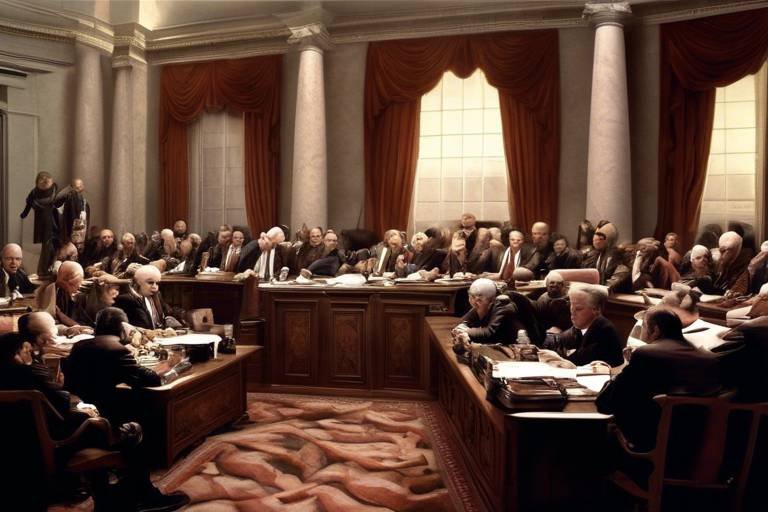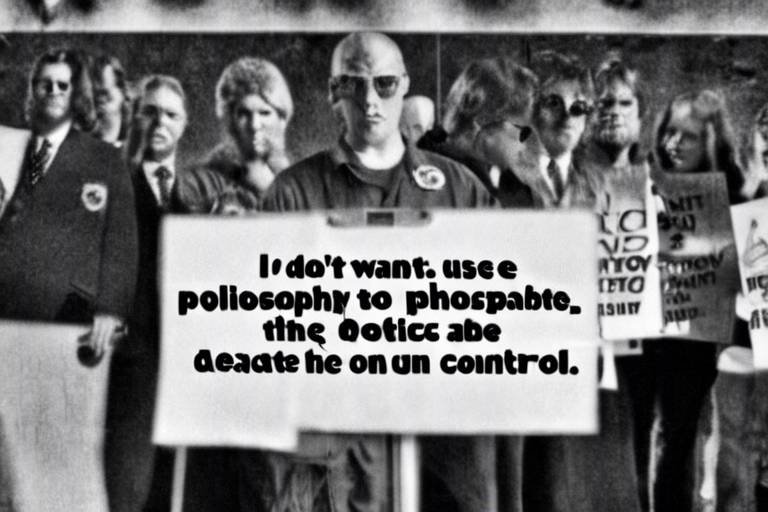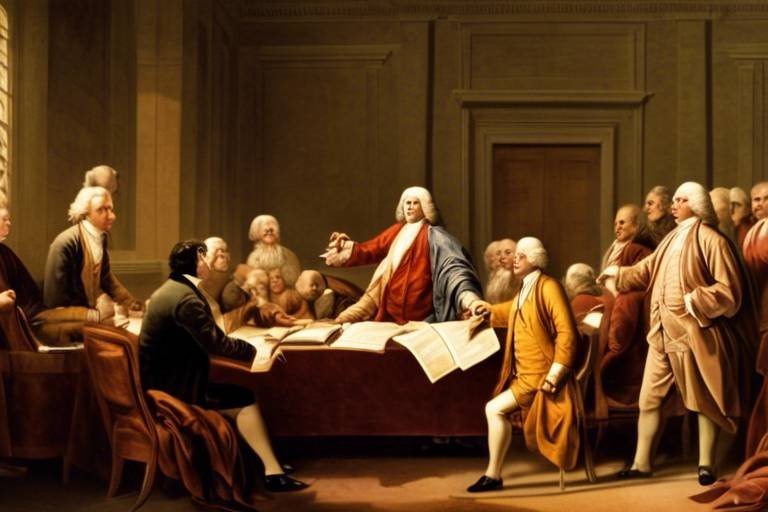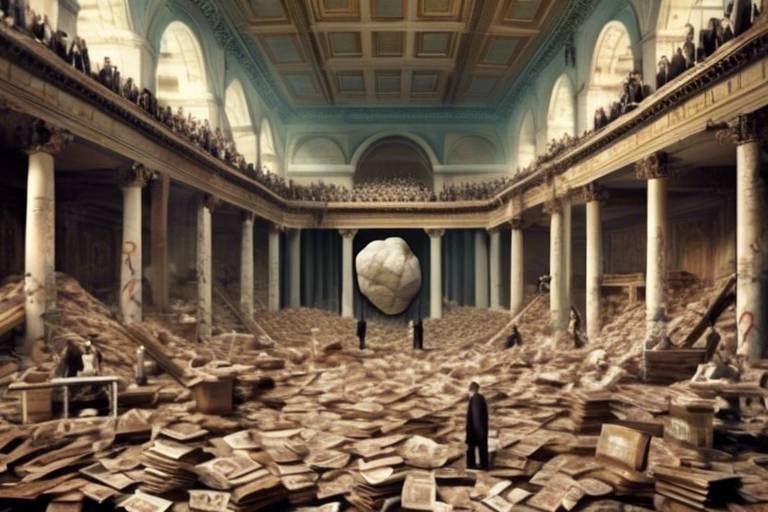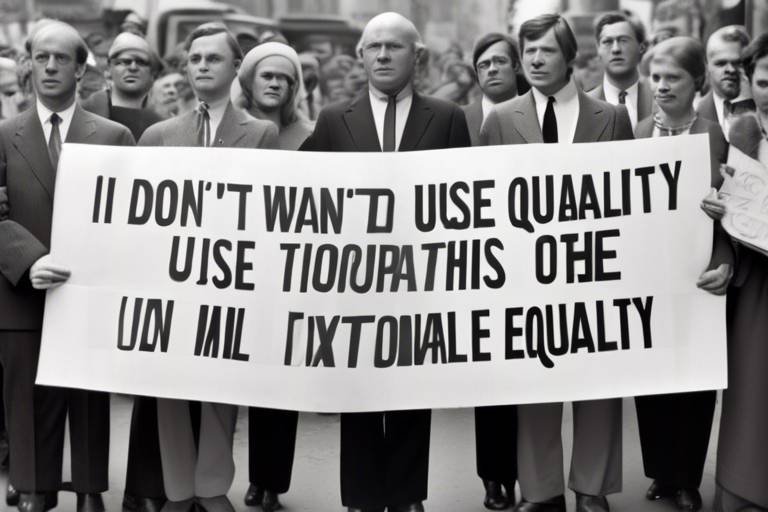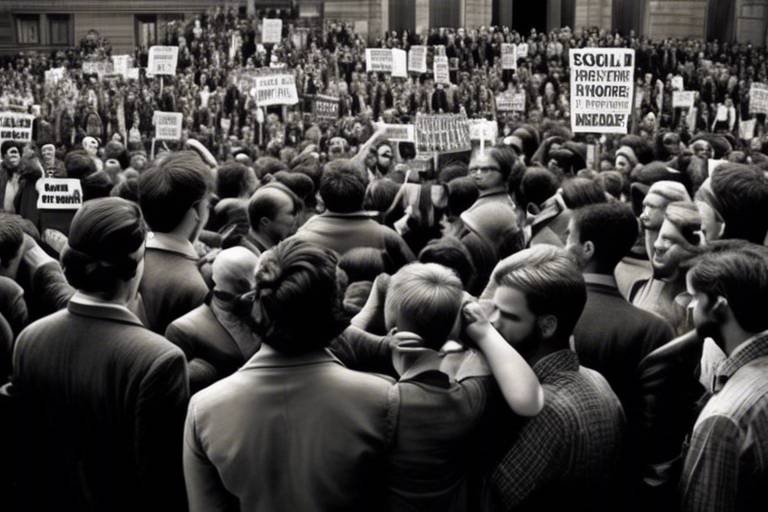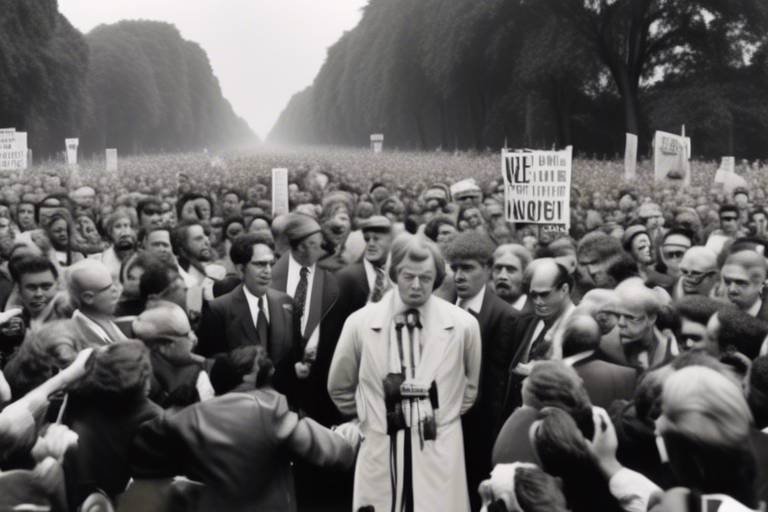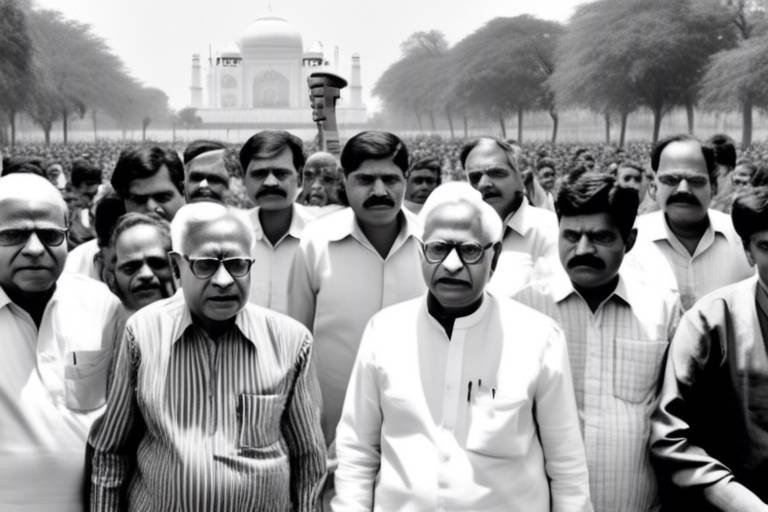Revisiting Political Philosophy - A 21st Century Perspective
In a world that is constantly evolving, the significance of political philosophy cannot be overstated. It serves as the backbone of our understanding of governance, justice, and the intricate web of human relationships that shape societies. As we step into the 21st century, we are faced with new challenges and opportunities that compel us to revisit and reevaluate the ideas that have stood the test of time. This article delves into the contemporary landscape of political philosophy, examining how classical theories and modern thought intertwine, and how they can guide us in navigating today's socio-political complexities.
Political philosophy is not just an academic exercise; it is a vibrant field that influences our daily lives. From the policies enacted by governments to the grassroots movements that challenge the status quo, the ideas of thinkers from ancient Greece to contemporary scholars resonate deeply within our societal fabric. In this exploration, we will uncover the evolution of political thought, spotlight key thinkers who have reshaped our understanding of justice and power, and analyze the relevance of classical theories in modern governance.
As we embark on this intellectual journey, it is essential to recognize the dynamic nature of political philosophy. It is akin to a living organism, adapting to the changing environment while retaining its core principles. Just as the seasons change, so do the ideologies that drive political discourse. By examining the past, we can gain insights into the present and prepare for the future. This article aims to provide a comprehensive understanding of modern political thought, highlighting its importance in fostering informed citizens and effective leaders.
The historical development of political philosophy is a fascinating tale that begins in the ancient world. Thinkers like Plato and Aristotle laid the groundwork for political thought, exploring concepts of justice, governance, and the ideal state. Their ideas have not only influenced Western political theory but have also permeated various cultures around the globe. As we move through the ages, we encounter a multitude of influential figures, each contributing unique perspectives that have shaped our understanding of politics.
Fast forward to the Enlightenment era, where the likes of John Locke and Jean-Jacques Rousseau introduced revolutionary ideas about individual rights and the social contract. Their thoughts ignited movements that challenged monarchies and paved the way for modern democracy. The 20th century brought forth philosophers such as John Rawls, who redefined concepts of justice and fairness, while Michael Walzer provided frameworks for evaluating the morality of war.
In today's fast-paced world, the relevance of these historical ideas is evident. Political philosophy continues to evolve, responding to global challenges such as inequality, climate change, and the rise of authoritarianism. As we explore the key thinkers of modern political philosophy, we will uncover how their theories resonate in contemporary political ideologies and practices.
Modern political philosophy is enriched by the contributions of several influential thinkers who have redefined political discourse. Among them, John Rawls stands out with his groundbreaking theory of justice as fairness. Rawls proposed that a just society is one where individuals operate from a position of equality, ensuring that the least advantaged members are given priority. This idea has sparked numerous debates and discussions about social justice, equality, and the role of government in addressing systemic disparities.
Another significant figure is Michael Walzer, whose work on the just war theory provides a moral framework for evaluating the ethics of warfare. In a world where conflicts are frequent, Walzer's arguments about the morality of war and the responsibilities of political leaders are more relevant than ever. His insights challenge us to consider the implications of our political decisions and the ethical responsibilities that come with power.
As we delve deeper into these thinkers' contributions, we will uncover how their ideas inform current political ideologies and practices, shaping the way we understand governance, justice, and the moral responsibilities of leaders.
- What is political philosophy? Political philosophy is the study of fundamental questions regarding governance, justice, rights, and the role of individuals in society.
- Who are some key thinkers in political philosophy? Notable thinkers include Plato, Aristotle, John Locke, John Rawls, and Michael Walzer, each contributing unique perspectives to the field.
- How does political philosophy relate to modern issues? Political philosophy provides frameworks for understanding and addressing contemporary issues such as inequality, climate change, and the ethics of war.
- Why is it important to study political philosophy today? Understanding political philosophy equips individuals with the tools to critically analyze political systems and advocate for justice and equality in society.

The Evolution of Political Philosophy
The journey of political philosophy is akin to a vast river, winding through the ages, carving its path through the landscapes of human thought and society. From the early musings of ancient philosophers in Greece to the complex theories of modern thinkers, political philosophy has evolved dramatically, reflecting the changing dynamics of power, governance, and justice. It is essential to recognize the roots of this discipline, as they provide the foundation for contemporary political thought.
In ancient Greece, philosophers like Plato and Aristotle laid the groundwork for political philosophy. Plato's *Republic* introduced the notion of an ideal state, where justice prevails and rulers are philosophers. Aristotle, on the other hand, offered a more pragmatic approach, analyzing existing political systems and advocating for a balanced government. Their ideas set the stage for centuries of debate on governance, ethics, and the role of the individual in society.
As we moved into the medieval period, the influence of religion became prominent, with thinkers such as St. Augustine and St. Thomas Aquinas integrating Christian theology with political thought. Their works explored the relationship between divine authority and earthly governance, emphasizing the importance of moral virtue in leadership. This era underscored the tension between faith and reason, a theme that would resurface in later philosophical discourse.
The Renaissance ushered in a new wave of political thought, marked by the emergence of Machiavelli. His seminal work, *The Prince*, shifted the focus from idealism to realism, arguing that the ends justify the means in political leadership. This pragmatic approach challenged the prevailing notions of morality in politics and laid the groundwork for modern political realism.
With the Enlightenment came a surge of revolutionary ideas. Thinkers like John Locke, Thomas Hobbes, and Jean-Jacques Rousseau redefined the concepts of social contract, individual rights, and the role of government. Locke's emphasis on natural rights and government by consent became foundational for liberal democracies, while Rousseau's notions of popular sovereignty and the general will inspired democratic movements worldwide. These ideas were not merely theoretical; they fueled revolutions and transformed societies.
The 19th and 20th centuries saw the rise of various political ideologies, including socialism, liberalism, and feminism, each contributing to the rich tapestry of political philosophy. Thinkers like Karl Marx critiqued capitalism and proposed a radical restructuring of society, while others, such as John Stuart Mill, championed individual liberty and utilitarianism. The clash of these ideologies reflects the ongoing struggle for power, justice, and equality in human societies.
Today, as we navigate the complexities of the 21st century, the evolution of political philosophy continues to be relevant. The challenges posed by globalization, technological advancements, and social movements demand a reevaluation of traditional theories. Political philosophers now grapple with questions about the nature of justice in a globalized world, the ethics of governance, and the implications of emerging technologies on privacy and autonomy.
As we reflect on the evolution of political philosophy, it becomes clear that its development is not linear but rather a dynamic interplay of ideas and events. Each era builds upon the last, creating a rich dialogue that informs our understanding of politics today. The insights gained from this historical journey are invaluable as we seek to address the pressing issues of our time.
- What is political philosophy? Political philosophy is the study of fundamental questions about government, justice, rights, and the role of individuals in society.
- Who are some key figures in political philosophy? Key figures include Plato, Aristotle, Machiavelli, John Locke, Karl Marx, and John Stuart Mill, among others.
- How has political philosophy evolved over time? Political philosophy has evolved from ancient idealism to modern realism, adapting to the changing political landscape and societal needs.
- Why is political philosophy relevant today? It helps us understand contemporary political issues, informs debates on governance and justice, and guides us in addressing modern challenges.

Key Thinkers in Modern Political Philosophy
Modern political philosophy has been shaped by a multitude of thinkers, each bringing their unique perspectives to the table. These philosophers have challenged conventional wisdom and offered fresh insights that resonate in today's complex political landscape. From the foundational ideas of social justice to the moral implications of warfare, the contributions of these intellectuals are vital in understanding the evolution of political thought.
One of the most influential figures in contemporary political philosophy is John Rawls. His groundbreaking work, A Theory of Justice, introduced the idea of "justice as fairness," which emphasizes the importance of equality and the fair distribution of resources. Rawls proposed that a just society is one where social and economic inequalities are arranged to benefit the least advantaged members. This principle has sparked debates on social justice, equity, and the role of government in addressing disparities. His ideas continue to influence discussions on welfare policies and economic reforms around the globe.
Another pivotal thinker is Michael Walzer, whose contributions to the Just War Theory have redefined the moral framework surrounding warfare. Walzer argues that war can only be justified under certain conditions, emphasizing the importance of proportionality and discrimination between combatants and non-combatants. His work challenges political leaders to consider the ethical implications of military actions, making his theories particularly relevant in today's geopolitical conflicts. The moral dilemmas faced by nations when engaging in warfare are often evaluated through the lens of Walzer's principles.
In addition to Rawls and Walzer, other influential philosophers include Judith Butler, who has explored the intersections of gender, identity, and politics, and Amartya Sen, whose capabilities approach has reshaped discussions on human development and welfare economics. These thinkers highlight the importance of inclusivity and the recognition of diverse identities within political discourse.
As we delve deeper into the realm of modern political philosophy, it becomes clear that the ideas of these key thinkers not only challenge our understanding of political structures but also encourage us to critically engage with the pressing issues of our time. Their theories provide a lens through which we can examine the moral responsibilities of political leaders, the implications of global interconnectedness, and the evolving nature of justice in society.
- Who is John Rawls and why is he significant in political philosophy?
John Rawls is a prominent philosopher known for his theory of justice as fairness, which emphasizes equality and the fair distribution of resources in society. - What is the Just War Theory proposed by Michael Walzer?
The Just War Theory evaluates the morality of warfare, arguing that war can only be justified under specific conditions, focusing on proportionality and the distinction between combatants and non-combatants. - How do contemporary philosophers influence modern political thought?
Contemporary philosophers challenge traditional ideas and introduce new frameworks that address current social issues, shaping political ideologies and practices today.
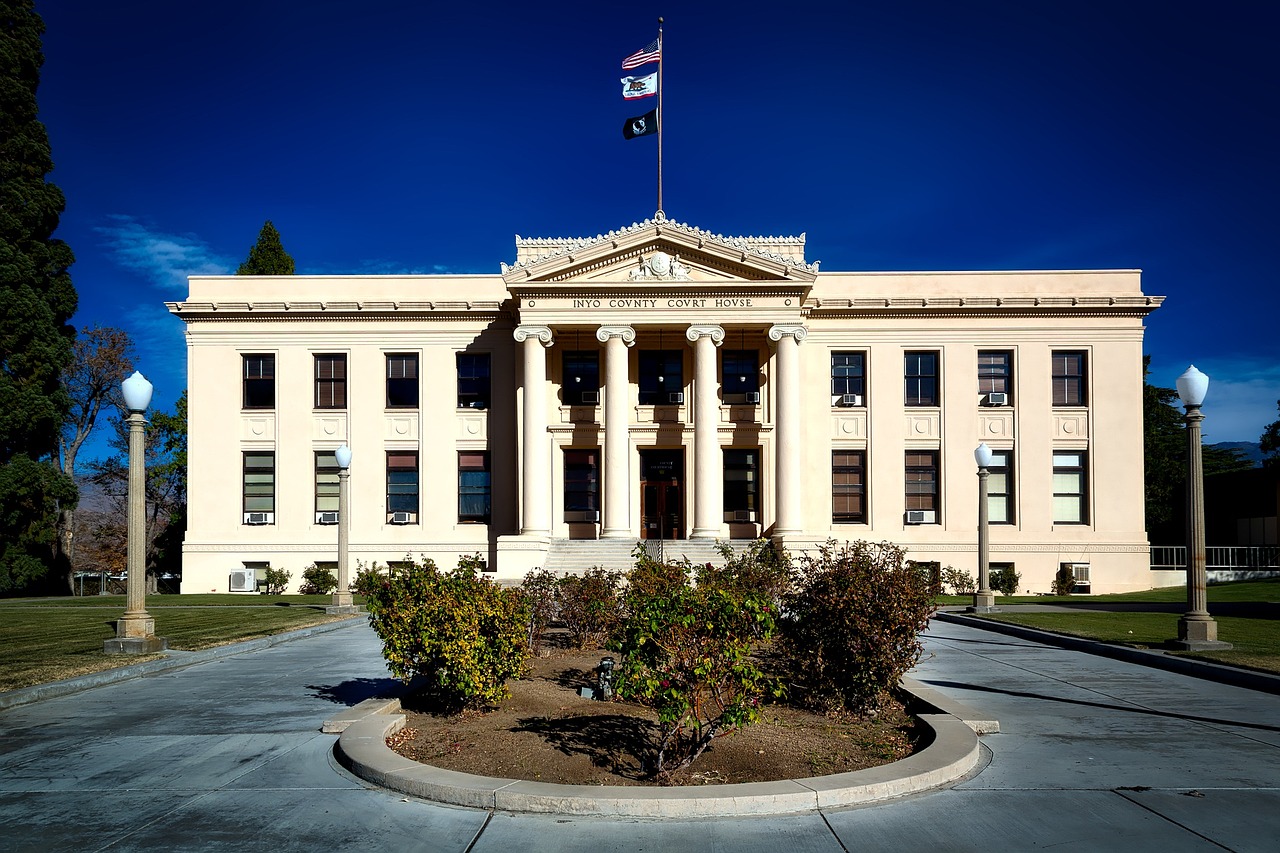
John Rawls and Justice as Fairness
John Rawls, a towering figure in modern political philosophy, introduced the concept of justice as fairness in his seminal work, A Theory of Justice. His ideas have sparked extensive debate and reshaped our understanding of social justice. But what exactly does "justice as fairness" mean? In simple terms, Rawls proposed that a just society is one where the principles of justice are agreed upon in a fair manner, ensuring that everyone has equal opportunities and protections.
At the heart of Rawls' theory lies the original position and the veil of ignorance. Imagine you are tasked with designing a society, but you have no idea what your place in that society will be. You could be rich or poor, healthy or sick, powerful or powerless. This thought experiment compels decision-makers to prioritize fairness and equality because they must consider the needs and rights of all individuals, regardless of their eventual status. It’s a bit like playing a game where you don’t know your hand until the end, forcing you to create rules that benefit everyone, not just yourself.
Rawls outlined two key principles of justice that emerge from this original position:
- The First Principle: Each person should have an equal right to the most extensive basic liberties compatible with similar liberties for others.
- The Second Principle: Social and economic inequalities should be arranged so that they are both to the greatest benefit of the least advantaged and attached to positions and offices open to all under conditions of fair equality of opportunity.
This framework not only emphasizes fairness but also highlights the importance of protecting the most vulnerable members of society. Rawls' ideas challenge us to rethink our political systems and policies. Are our laws truly fair? Do they promote equality and justice for all, especially those at the bottom of the social ladder?
Moreover, Rawls’ theory has profound implications for contemporary political debates. In discussions about healthcare, education, and social welfare, his principles push us to consider how policies can be designed to lift the disadvantaged rather than perpetuate inequality. For instance, when debating healthcare reform, one might ask: Does this policy ensure equitable access for everyone, regardless of their socio-economic status?
In summary, John Rawls’ vision of justice as fairness invites us to reflect on our moral responsibilities as citizens and policymakers. It encourages a society where equity is not just an ideal, but a practical standard that guides decision-making. As we navigate the complexities of modern governance, Rawls’ insights remain incredibly relevant, challenging us to strive for a more just and equitable world.
- What is the original position? The original position is a hypothetical scenario created by Rawls where individuals design a society without knowing their future status within it, ensuring fairness.
- What does the veil of ignorance mean? The veil of ignorance is a tool used in Rawls' theory to eliminate bias in decision-making by preventing individuals from knowing their personal circumstances.
- How does Rawls' theory apply to modern politics? Rawls' principles can be applied to evaluate policies and laws to ensure they promote fairness and support the least advantaged in society.

Michael Walzer and the Just War Theory
In the realm of political philosophy, few topics ignite as much debate as the ethics of war. Michael Walzer, a prominent contemporary philosopher, has made significant contributions to this discourse through his formulation of the Just War Theory. His work, particularly in the book Just and Unjust Wars, provides a framework for evaluating the morality of warfare, emphasizing that not all wars are created equal.
Walzer's theory is built on a foundation of two main principles: jus ad bellum (the right to go to war) and jus in bello (the right conduct within war). These principles help to delineate when it is permissible to engage in war and how to conduct oneself ethically during armed conflict. For instance, under jus ad bellum, a state must have a just cause—such as self-defense or protecting human rights—before declaring war. This principle challenges the traditional realist perspective, which often prioritizes national interest over moral considerations.
Moreover, jus in bello emphasizes the importance of proportionality and discrimination in warfare. Walzer argues that combatants must distinguish between military targets and civilians, ensuring that civilian casualties are minimized. This is crucial in modern conflicts, where the lines between combatants and non-combatants can often blur. The ethical implications of these principles are profound, as they compel military leaders and politicians to consider the moral weight of their decisions.
To further illustrate Walzer's impact, let's look at some key aspects of his Just War Theory:
| Principle | Description |
|---|---|
| Jus ad Bellum | Criteria for justifying the initiation of war, including just cause and proportionality. |
| Jus in Bello | Guidelines for ethical conduct during war, focusing on discrimination and proportionality in actions. |
| Right Intention | The motivation behind the war must align with the just cause, such as restoring peace or protecting rights. |
Walzer’s contributions extend beyond theoretical discussions; they have practical implications for contemporary conflicts. For example, in the context of humanitarian interventions, his principles challenge the notion that sovereignty should be absolute. Instead, they advocate for intervention when a state fails to protect its citizens from gross human rights violations. This perspective is particularly relevant in today’s global landscape, where issues like genocide and ethnic cleansing demand urgent moral responses.
However, Walzer's Just War Theory is not without its critics. Some argue that it can be misused to justify wars that may not meet the stringent criteria he outlines. Others contend that the complexity of modern warfare, including asymmetrical conflicts and the rise of non-state actors, complicates the application of his principles. Nevertheless, Walzer's work remains a cornerstone in the study of political philosophy and ethics, prompting ongoing discussions about the morality of war in an increasingly interconnected world.
In conclusion, Michael Walzer's Just War Theory serves as a vital framework for understanding the ethical dimensions of warfare. By emphasizing the importance of just causes and ethical conduct, it challenges us to reconsider how we view conflicts and the moral responsibilities of those who engage in them. As global tensions continue to rise, the relevance of Walzer's insights becomes ever more critical in guiding our approach to peace and conflict resolution.
- What is Just War Theory? Just War Theory is a philosophical framework that evaluates the morality of warfare, focusing on the justification for going to war and the ethical conduct during war.
- Who is Michael Walzer? Michael Walzer is a contemporary political philosopher known for his work on Just War Theory and ethics in warfare.
- What are the main principles of Just War Theory? The main principles include jus ad bellum (the right to go to war) and jus in bello (the right conduct within war).
- How does Just War Theory apply to modern conflicts? It provides a moral framework for evaluating the justification and conduct of wars, especially in humanitarian interventions.

Classical Theories in a Modern Context
The relevance of classical political theories in today's world is akin to a timeless melody that continues to resonate with each new generation. Think about it: the foundational ideas put forth by philosophers like Plato and Machiavelli still echo in the corridors of modern governance and political discourse. As we navigate the complexities of contemporary politics, it becomes increasingly clear that these classical theories offer invaluable insights into the nature of power, justice, and governance.
Plato’s vision of an ideal state, articulated in his seminal work, "The Republic," raises profound questions about the essence of governance and the pursuit of justice. He posited that a just society could only be achieved through the rule of philosopher-kings—wise and virtuous leaders who prioritize the common good over personal ambition. In today's context, this ideal challenges us to consider the qualities we seek in our political leaders. Are we striving for leaders who embody wisdom and integrity, or are we merely drawn to charisma and populism? The quest for a just society remains a central theme in political debates, reminding us that the ideals of governance are not merely historical artifacts but living concepts that demand our attention.
On the other hand, Machiavelli, often viewed as the father of modern political realism, presents a contrasting perspective that emphasizes the pragmatic aspects of power. His work, "The Prince," suggests that the ends often justify the means, a notion that can be unsettling yet compelling in the realm of politics. In an era where political leaders are often faced with tough decisions that blur ethical lines, Machiavelli's insights resonate strongly. His emphasis on strategy, manipulation, and the harsh realities of political life serves as a reminder that while ideals are noble, the practice of politics often requires a certain degree of ruthlessness. This dichotomy between idealism and realism is not just a historical debate; it is a living tension that plays out in our political landscape today.
To further illustrate the ongoing relevance of these classical theories, consider the following key points:
- Plato's Idealism: The search for justice and the role of virtuous leadership remain central to modern democratic ideals.
- Machiavelli's Realism: The necessity of strategic thinking and pragmatic decision-making in political leadership is more relevant than ever.
- Ethical Governance: The balance between ethical considerations and political expediency continues to challenge leaders worldwide.
Moreover, the application of these theories can be seen in various contemporary issues, such as the global rise of authoritarian regimes, the challenges of democratic governance, and the ethical dilemmas faced by leaders in times of crisis. As we scrutinize these modern dilemmas, the teachings of Plato and Machiavelli provide us with a framework to analyze the motivations behind political actions and the consequences they yield.
In essence, classical political theories are not relics of the past but vibrant tools that can help us navigate today's political complexities. They compel us to reflect on our values, question our leaders, and strive for a political culture that honors both justice and pragmatism. As we stand at the crossroads of tradition and modernity, it is crucial to engage with these classical ideas, allowing them to inform our understanding of the political landscape and guide us toward a more just and effective governance.
Q1: How do classical theories of political philosophy apply to modern governance?
A1: Classical theories provide foundational insights into governance, justice, and power dynamics, helping us analyze and critique contemporary political practices.
Q2: Are Plato's ideas about philosopher-kings still relevant today?
A2: Yes, Plato’s emphasis on wise and virtuous leadership encourages us to consider the qualities we value in our political leaders, especially in democratic societies.
Q3: What can we learn from Machiavelli's approach to power?
A3: Machiavelli’s pragmatic insights into the nature of power remind us that political leaders often face difficult choices, highlighting the tension between ethical considerations and practical governance.
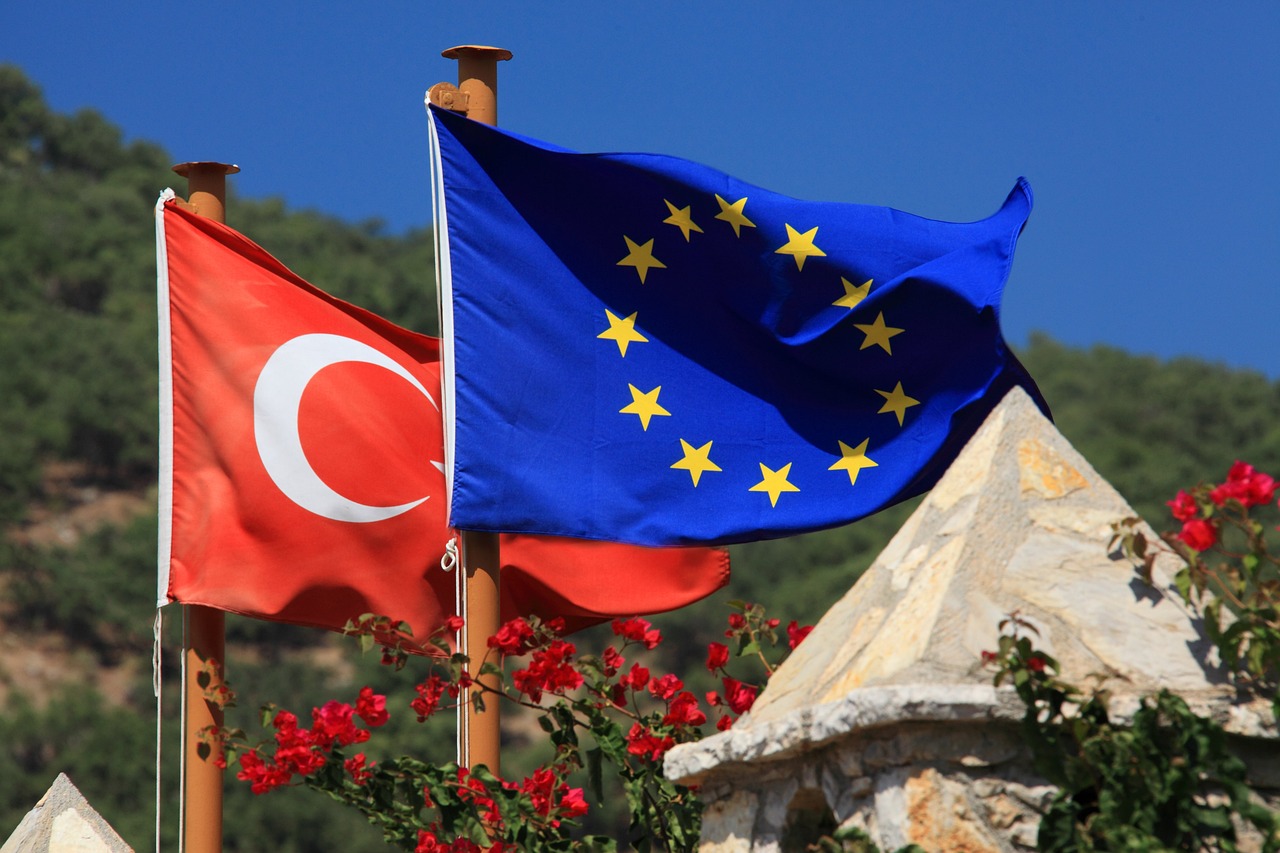
Plato's Ideal State
Plato's vision of an ideal state is a fascinating exploration of governance and justice that continues to resonate in today's political discussions. In his seminal work, The Republic, Plato outlines a society governed by philosopher-kings, individuals who possess both wisdom and virtue. This concept raises profound questions about the nature of leadership and the qualities that define a just ruler. Imagine a world where those in power are not driven by personal ambition but by a genuine desire to serve the common good. How different would our political landscape be?
At the core of Plato's ideal state lies the belief that justice is paramount. He argues that a just society is one where each individual performs their designated role, contributing to the overall harmony and stability of the community. This idea can be likened to a well-tuned orchestra, where every musician plays their part in creating a beautiful symphony. In Plato's view, when individuals focus on their strengths and responsibilities, society flourishes. However, this raises a critical question: can we truly expect people to act selflessly for the greater good?
Plato also introduces the concept of the tripartite soul, which he parallels with the structure of his ideal state. He posits that just as the soul comprises three parts—reason, spirit, and appetite—society should be organized into three classes: the rulers (those who embody reason), the warriors (who represent spirit), and the producers (who satisfy appetites). This classification suggests that a balanced society requires each class to function harmoniously, echoing the ancient Greek idea of arete, or excellence. The question arises: can such a rigid class system exist in a modern, democratic society?
Despite its theoretical allure, Plato's ideal state has faced criticism, particularly regarding its feasibility and application in contemporary governance. Critics argue that the idea of philosopher-kings is utopian and that it overlooks the complexities of human nature. In a world where power can corrupt, how can we ensure that those who govern are truly wise and virtuous? This skepticism leads us to explore how Plato's ideas can be adapted to modern democratic frameworks, where transparency, accountability, and public participation are crucial.
To further illustrate Plato's vision, consider the following table that summarizes key elements of his ideal state:
| Element | Description |
|---|---|
| Philosopher-Kings | Rulers who possess wisdom and virtue, governing for the common good. |
| Tripartite Society | Three classes: rulers (reason), warriors (spirit), and producers (appetite). |
| Justice | Each individual performs their designated role, contributing to societal harmony. |
In conclusion, while Plato's ideal state may seem distant from our current political realities, its principles provoke critical reflection on our governance structures. The pursuit of justice, the role of leadership, and the organization of society remain pertinent issues today. As we navigate our complex political landscape, we must ask ourselves: can we learn from Plato's vision to create a more just and equitable society?
- What is Plato's ideal state?
Plato's ideal state is a theoretical society governed by philosopher-kings, emphasizing justice and the proper functioning of social classes. - How does Plato's tripartite soul relate to his ideal state?
Plato's tripartite soul consists of reason, spirit, and appetite, paralleling the roles of rulers, warriors, and producers in his ideal state. - Is Plato's ideal state achievable in modern society?
While some argue it's utopian, others believe elements of his philosophy can inform contemporary governance and justice.

Machiavelli's Realism and Power
When we think of political power, the name Niccolò Machiavelli inevitably springs to mind. His work, particularly in "The Prince," offers a lens through which we can view the often harsh realities of political leadership. Unlike many philosophers who focus on idealism and moral principles, Machiavelli is known for his realism. He dives deep into the murky waters of power dynamics, suggesting that the pursuit of power often requires a departure from traditional ethical norms.
Machiavelli's perspective is not merely cynical; it's a pragmatic approach to governance that acknowledges the complexities of human nature. He argues that leaders must sometimes engage in morally questionable actions to maintain stability and order. This idea can be unsettling, yet it resonates strongly in today's political climate, where leaders often face dilemmas that pit ethical considerations against practical necessities.
One of the key concepts Machiavelli introduces is the idea of the virtu and fortuna. Virtù refers to the qualities and skills a leader possesses, while fortuna represents the unpredictable nature of luck and circumstance. A successful ruler, in Machiavelli's view, must skillfully navigate these two forces. They should be adaptable, seizing opportunities as they arise, and be prepared to act decisively when fortune favors them. This duality highlights a fundamental aspect of political strategy: the need for leaders to be both shrewd and opportunistic.
In a modern context, Machiavelli's ideas can be seen in the strategies employed by contemporary political leaders. For instance, during elections, candidates often shift their positions based on public opinion—a tactic that reflects Machiavellian pragmatism. They may also engage in realpolitik, prioritizing practical outcomes over ideological purity. This approach can lead to effective governance, but it raises questions about integrity and the ethical responsibilities of those in power.
Moreover, Machiavelli's insights extend to international relations. In a world characterized by geopolitical tensions, leaders often face choices that require them to balance national interests with ethical considerations. For example, should a nation intervene in a conflict to promote democracy, even if it risks destabilization? Here, Machiavelli would argue that the ends can justify the means, provided that the ultimate goal is the preservation of the state.
To further illustrate Machiavelli's relevance, consider the following table that contrasts his principles with contemporary political practices:
| Machiavelli's Principle | Modern Application |
|---|---|
| Ends justify the means | Political leaders often prioritize results over ethics. |
| Adaptability to fortune | Politicians shift policies based on public sentiment. |
| Use of deception | Campaign strategies may involve misleading information. |
In conclusion, Machiavelli's thoughts on realism and power continue to hold significant weight in our understanding of political behavior. His emphasis on the pragmatic aspects of governance challenges us to consider the complexities of leadership in a world where ethical lines are often blurred. As we navigate the intricate web of modern politics, Machiavelli's insights serve as a reminder that power is not merely about authority but also about the skillful management of human nature and circumstances.
- What is Machiavelli's main argument in "The Prince"? Machiavelli argues that effective political leadership often requires pragmatic, sometimes ruthless, decision-making that prioritizes stability and power over traditional morality.
- How does Machiavelli's realism apply to modern politics? His principles can be seen in contemporary political strategies, where leaders often adapt their policies based on public opinion and pragmatic considerations.
- Why is Machiavelli considered a controversial figure? His advocacy for realpolitik and the idea that the ends justify the means can be seen as endorsing unethical behavior in politics.

The Role of Ethics in Politics
Politics and ethics are like two sides of the same coin, constantly flipping and landing on different outcomes depending on the context. In today's fast-paced political landscape, where decisions can impact millions, the question arises: What is the moral responsibility of political leaders? The intersection of ethics and politics is not just a theoretical debate; it affects the lives of everyday citizens and shapes the policies that govern societies.
At its core, ethics in politics involves the principles that guide the behavior of individuals and institutions in power. It's about asking tough questions such as, Should a politician prioritize the needs of their constituents over their own interests? or Is it ever justifiable to compromise ethical standards for the sake of political expediency? These dilemmas are not new; they have been discussed by philosophers for centuries, yet they remain incredibly relevant today.
To better understand the role of ethics in politics, we can categorize ethical theories into a few key frameworks:
- Consequentialism: This theory suggests that the morality of an action is judged solely by its outcomes. Politicians who adopt this view may justify controversial decisions if they believe the end result will benefit the majority.
- Deontology: In contrast, deontological ethics focuses on the inherent morality of actions themselves, regardless of the consequences. This perspective can lead to rigid adherence to rules and principles, even in the face of political pressure.
- Virtue Ethics: This approach emphasizes the character and virtues of the decision-maker rather than the rules or consequences. A politician guided by virtue ethics might prioritize honesty, integrity, and compassion in their governance.
Understanding these frameworks helps us grasp why ethical considerations are crucial in political decision-making. For instance, when a leader faces a crisis, such as a natural disaster or economic downturn, the ethical approach they choose can influence their response. Do they prioritize transparency and accountability, or do they opt for secrecy and manipulation to maintain control? The choices made in such moments can have lasting effects on public trust and the health of democracy.
Moreover, the ethical landscape is further complicated by globalization. As nations become interconnected, political leaders are often faced with ethical dilemmas that transcend borders. Issues like climate change, human rights, and international trade require a nuanced understanding of ethics that considers both local and global implications. For example, a politician might struggle with the ethical implications of supporting a trade agreement that benefits their economy but exploits labor in another country. Here, the balance between national interest and global responsibility becomes a tightrope walk.
In light of these complexities, it’s essential for political leaders to engage in continuous ethical reflection and dialogue. They must not only be aware of their own moral compass but also be receptive to the voices of their constituents. Engaging with the public through forums, town halls, and social media can help leaders gauge the ethical expectations of the communities they serve. This two-way communication fosters a culture of accountability and encourages leaders to align their actions with the ethical standards expected of them.
As we look to the future, the role of ethics in politics will likely become even more pronounced. With the rise of technology and social media, the public's scrutiny of political actions is at an all-time high. Leaders must navigate this landscape carefully, as their decisions are subject to immediate and widespread evaluation. The challenge will be to maintain ethical integrity while effectively managing the complexities of modern governance.
In conclusion, the role of ethics in politics is not merely an academic exercise; it is a vital element that can determine the effectiveness and legitimacy of political leadership. As we continue to grapple with pressing global issues, the importance of ethical considerations in political discourse cannot be overstated. The future of our societies may very well depend on the moral choices made by those in power.
- Why is ethics important in politics? Ethics ensures that political leaders act responsibly and consider the welfare of their constituents, fostering trust and accountability.
- What are the main ethical frameworks in politics? The main frameworks include consequentialism, deontology, and virtue ethics, each offering different perspectives on moral decision-making.
- How does globalization affect political ethics? Globalization complicates ethical decision-making as leaders must consider both local and global impacts of their policies.
- What can citizens do to promote ethical governance? Citizens can engage with their leaders, participate in public discourse, and hold politicians accountable for their actions.

Globalization and Political Philosophy
In the 21st century, globalization has emerged as a pivotal force reshaping political landscapes across the globe. This phenomenon, characterized by the increasing interconnectedness of nations through trade, technology, and cultural exchange, poses unique challenges and opportunities for political philosophy. As we navigate this complex web of relationships, it becomes essential to examine how globalization influences political ideologies and governance.
The impact of globalization on political philosophy is multifaceted. For instance, it raises critical questions about national sovereignty, identity, and the role of international institutions. As countries become more interdependent, the traditional notions of statehood and governance are being challenged. How do we reconcile the need for global cooperation with the desire for national autonomy? This tension is at the heart of contemporary political debates.
Moreover, globalization has led to the emergence of new political movements that advocate for global citizenship and social justice. These movements often draw on the principles of cosmopolitanism, which argue that all human beings belong to a single community, regardless of national boundaries. This perspective encourages a shift from a purely nationalistic viewpoint to one that embraces global responsibility. However, this shift is not without its critics, who argue that it undermines local cultures and traditions.
To illustrate the impact of globalization on political philosophy, consider the following table that highlights key aspects:
| Aspect | Impact of Globalization |
|---|---|
| National Sovereignty | Challenges traditional notions of statehood and governance. |
| Identity | Creates a dialogue between local and global identities. |
| Political Movements | Fosters global citizenship and social justice initiatives. |
| International Institutions | Increases reliance on global governance structures. |
Furthermore, globalization affects how political philosophies are disseminated and discussed. The internet and social media platforms have democratized access to information, allowing diverse voices to contribute to political discourse. This has led to the rapid spread of ideas and ideologies, but it has also created echo chambers where misinformation can thrive. As political philosophers, we must grapple with these dynamics and consider how they influence public opinion and policy-making.
In conclusion, the intersection of globalization and political philosophy is a rich field of inquiry that demands our attention. As we continue to navigate an increasingly interconnected world, the principles of political thought must evolve to address the complexities of modern governance. The challenge lies in balancing global interconnectedness with local needs, ensuring that political philosophies remain relevant and responsive to the realities of our time.
- What is globalization in the context of political philosophy? Globalization refers to the increasing interconnectedness of nations, which influences political ideologies and governance.
- How does globalization affect national sovereignty? It challenges traditional notions of statehood, leading to debates about the balance between global cooperation and national autonomy.
- What role do international institutions play in globalization? They facilitate cooperation among nations and address global issues that transcend national borders.
- How can political philosophy adapt to globalization? By evolving to address the complexities of modern governance and ensuring relevance in a rapidly changing world.
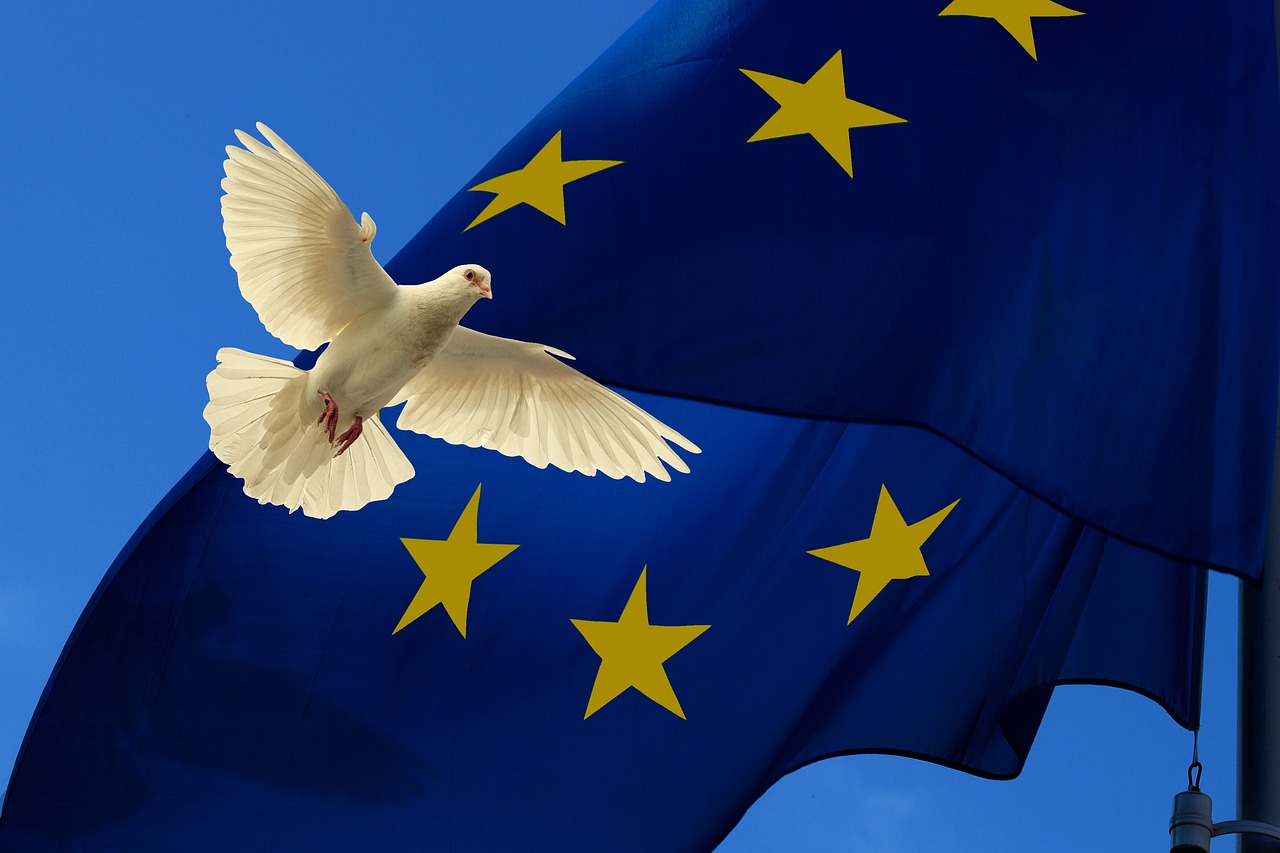
Future Directions in Political Thought
As we gaze into the horizon of political thought, it's clear that the landscape is shifting beneath our feet. The challenges of the 21st century—climate change, digital surveillance, social inequality, and global pandemics—are not just reshaping our world but also redefining how we think about governance and power. Political philosophy is at a crossroads, where traditional ideas must adapt to new realities. So, what does the future hold for political thought?
One significant trend is the rise of global citizenship. With borders becoming increasingly porous due to globalization, individuals are beginning to identify less with their nation-states and more as global citizens. This shift raises questions about national sovereignty and the responsibilities of individuals beyond their immediate communities. As we move forward, political philosophers will need to explore how to balance local governance with global responsibilities.
Another area ripe for exploration is the impact of technology on democracy. The digital age has transformed how we engage with politics, from social media campaigns to online voting. However, this transformation comes with its own set of challenges, including misinformation and the erosion of privacy. Philosophers must grapple with questions like: How do we ensure that technology serves democracy rather than undermines it? What ethical frameworks can guide the use of data in political campaigns?
Moreover, the conversation around identity politics is likely to intensify. As societies become more diverse, the struggle for recognition and representation will shape political agendas. Philosophers will need to address the complexities of intersectionality and how various identities interact within the political sphere. This exploration could lead to a more nuanced understanding of justice that goes beyond traditional frameworks.
In addition, the concept of sustainability is becoming increasingly central to political discourse. Climate change is not just an environmental issue; it's a political one that requires a rethinking of our economic systems and values. Political philosophers will need to engage with ecological ethics and develop frameworks that prioritize sustainable governance. This might include reimagining economic growth and success beyond mere GDP metrics, focusing instead on well-being and environmental health.
Lastly, the future of political thought will likely see a resurgence of localism. In response to global challenges, many communities are turning inward, seeking to empower local governance and grassroots movements. This trend emphasizes the importance of localized decision-making and community engagement. Philosophers will need to explore how these local movements can coexist with global initiatives, creating a more integrated approach to governance.
As we stand on the brink of these exciting developments, the future of political philosophy holds immense potential. It invites us to rethink our assumptions, challenge the status quo, and envision a world where political thought is as dynamic and diverse as the society it aims to serve.
- What is the role of technology in shaping future political thought? Technology influences how we communicate and engage in politics, presenting both opportunities and challenges for democracy.
- How does globalization affect national sovereignty? Globalization encourages interconnectedness, which can challenge traditional notions of sovereignty and national identity.
- What is the significance of localism in contemporary politics? Localism emphasizes the importance of grassroots movements and local governance in addressing community-specific issues.
- How can political philosophy address climate change? Political philosophy can provide ethical frameworks that prioritize sustainability and guide policy-making to combat climate change.
Frequently Asked Questions
- What is the main focus of contemporary political philosophy?
Contemporary political philosophy primarily examines the ideas and theories that shape our understanding of governance, justice, and the role of individuals in society. It reflects on traditional theories while addressing modern issues like globalization, social justice, and ethical governance.
- Who are some key thinkers in modern political philosophy?
Some influential figures include John Rawls, who introduced the concept of justice as fairness, and Michael Walzer, known for his just war theory. Their ideas have significantly influenced contemporary political discourse and ethical considerations in governance.
- How does John Rawls’ theory impact modern political debates?
Rawls' principles of justice advocate for fairness and equality in social institutions. His theory challenges us to consider how policies affect the least advantaged, thereby influencing discussions on welfare, healthcare, and education reforms in today's society.
- What relevance do classical political theories have today?
Classical theories from thinkers like Plato and Machiavelli provide timeless insights into governance and power dynamics. For instance, Plato's ideal state raises questions about justice and leadership, while Machiavelli's realism helps us understand the complexities of political strategy in modern contexts.
- How do ethics play a role in political leadership?
Ethics are crucial in politics as they guide leaders in making decisions that affect the public. The moral responsibilities of political leaders shape policies and governance, ensuring that actions align with societal values and ethical standards.
- What challenges does globalization pose to political philosophy?
Globalization complicates political philosophy by introducing issues of interconnectedness, cultural diversity, and economic interdependence. It challenges traditional notions of sovereignty and prompts new discussions about global governance and justice.
- What future trends could influence political thought?
Emerging trends such as digital democracy, environmental ethics, and social movements are likely to shape the future of political philosophy. These developments challenge existing paradigms and offer new frameworks for understanding governance and civic engagement.

